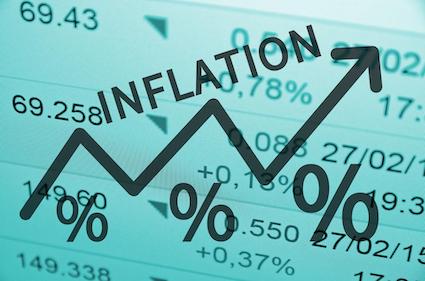Inflation in Malaysia ― why are we barking up the wrong tree?

Firdaus Abdul Rahman, Malay Mail Online
If you are late for work due to factors outside your control – maybe due to a massive crash along the highway or flash floods which rendered many routes unpassable – how do you feel? Most of us will feel upset or stressed out. We may worry about missing out on important meetings or whether the boss will accept our explanation for being late.
But for most people, there’s also a sense of resignation over their bad luck. They take it in their stride and move on, knowing that there’s no point blaming the weather or other reckless drivers; it doesn’t solve the problem nor is doing so productive. These are factors beyond their control and many just shrug it off and focus on remedial action like catching up on lost time.
I believe the same should apply to the current price hike involving essential goods and services in the country. While it’s true that inflationary pressure is pushing up the prices of goods like cooking oil, eggs and chicken, we should recognise that the price hike was largely due to factors outside Malaysia’s control.
First of all, Malaysia is not the only country facing inflationary pressure. In the UK, it was 9.1 per cent, the highest in 40 years. In the United States, it rose to 8.6 per cent, also a four-decade high. In Malaysia? It’s only 2.8 per cent for May according to the Statistics Department!
The global hike in prices is attributed to a myriad of factors. Since the onset of the Covid-19 pandemic, the global supply chain has been severely disrupted. To cite an example, not too long ago, KFC restaurants did not serve fries despite it being a signature dish, due to the global shortage in potatoes. Less supply means price hikes!
This problem is exacerbated by the war in Ukraine. Global geopolitical tension and ground clashes have upended many production, not just in the Black Sea region, but globally as well.
The third factor is the unfavourable weather patterns. From the yield in produce like wheat and sunflower seeds, the unpredictable weather stemming from global warming has wreaked havoc on the supply of essential items from flour to cooking oil.
These are factors beyond the control of any single Government, much less Malaysia’s. That being the case, why are we blaming the current Government for the hike in prices like cooking oil and eggs?
Any Government in power today could only do so much to keep the lid on prices of goods and services. If there was an easy solution, advanced countries like the United States and United Kingdom would not be recording such stratospheric inflation rates.
So, I don’t get why many of us are so unnecessarily worked up at the current Government over the price hikes. Would our rants on social media solve the problem? Is sharing memes running down the Government going to help reduce the prices of goods and services? Would taking to the streets help?
If we are resigned to the fact that a heavy downpour in downtown KL can cause our commute to work to be delayed, why can’t we accept the fact that changing global weather patterns are causing the prices of cooking oil to rise? Both are also factors outside our control. In fact, no Governments in the world, much less the ruling or opposition parties in Malaysia, can control the weather or end the war in Ukraine.
Barking up the wrong tree is unproductive. It gives false hopes that things will change if someone else is in charge or had things been done differently. That’s like wishing that there would not be any heavy downpours on mornings when we need to head to work.
It is more productive for one to channel one’s energy and resources from making baseless complaints to seeking practical solutions to mitigate the effects of price hikes at the personal level. For example, we can consider switching from using unsubsidised cooking oil to subsidised ones. It’s like how instead of blaming God for the heavy downpour, we can think of ways to catch up on work after arriving late at the office due to a flash flood.
Let’s be realistic. The Ismail Sabri administration has allocated some RM80 billion in subsidies this year, benefitting mostly the B40 group. That’s already a record high at a time when the country has barely recovered from the pandemic.
The last thing the country needs now is howlings that are not based on reality and clouded by political biases.

